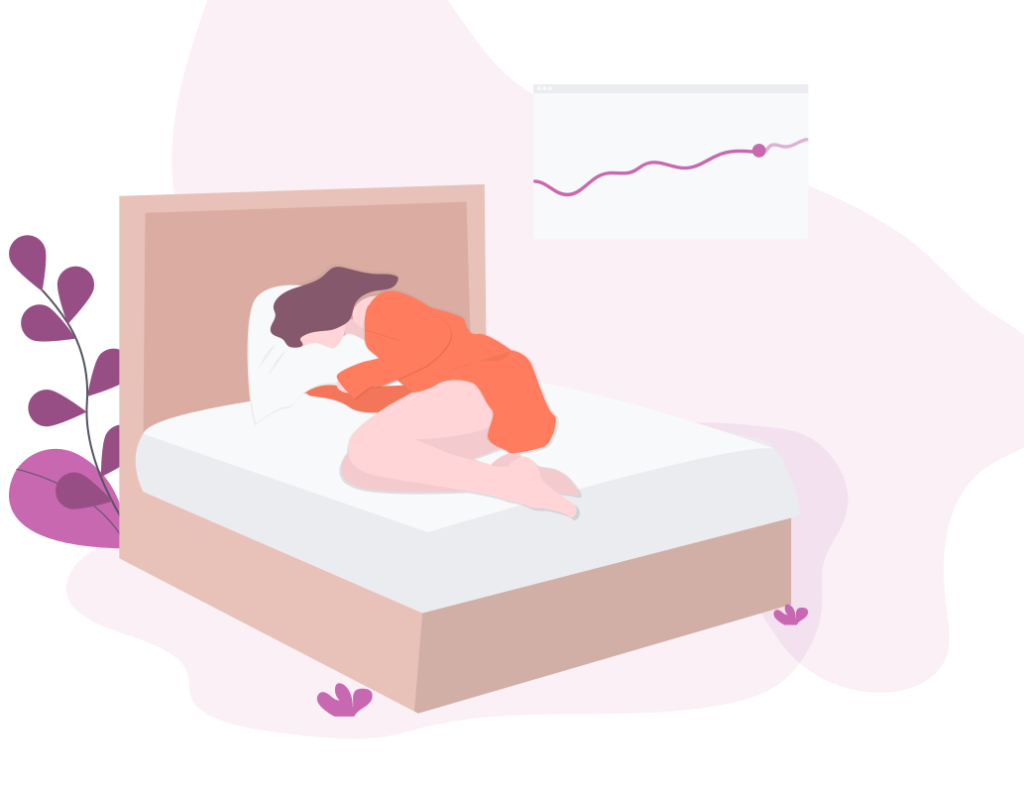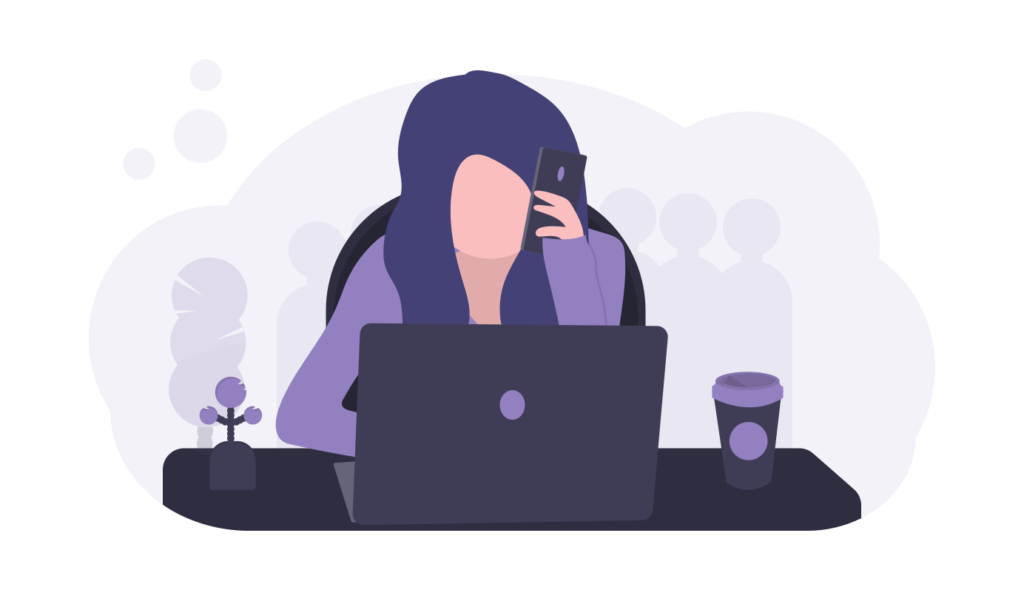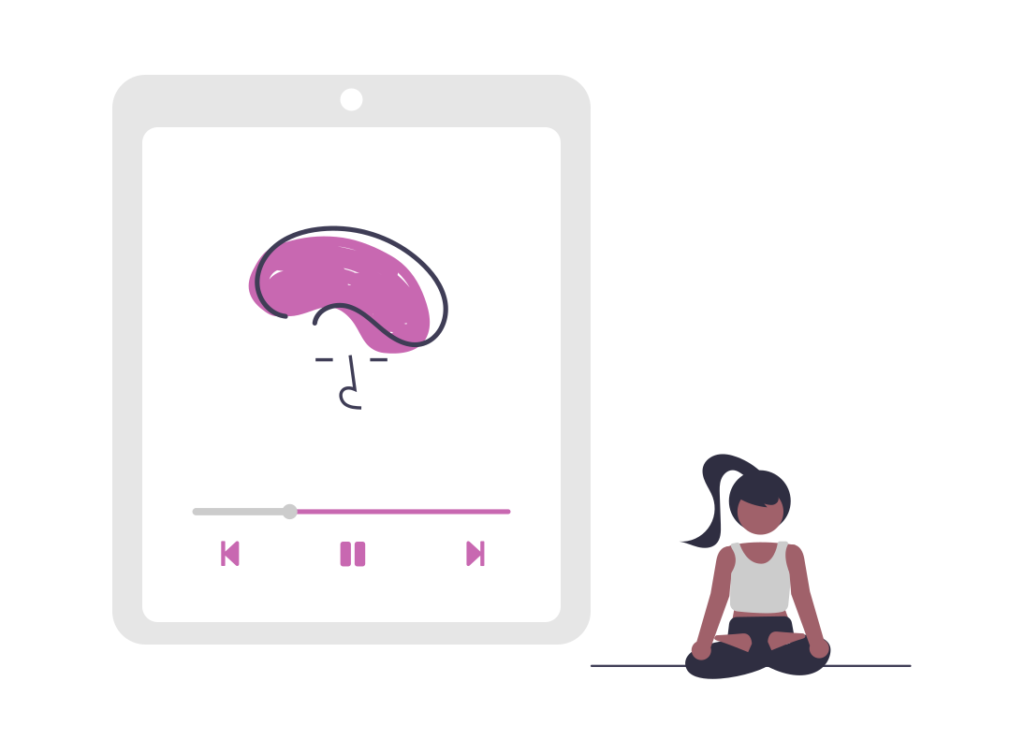How have you been sleeping lately? There are few things better than a good night’s sleep. But these days so many of us struggle to catch enough zzz’s. You might spend hours wide awake counting sheep. Or, perhaps, you’re out like a light — only to wake up at 3am, tossing and turning. It can be exasperating. Sadly, broken sleep every night is a problem that more and more of us face.
Research from Aviva says that almost two thirds (67%) of UK adults suffer from disrupted sleep, with a quarter (23%) managing less than five hours a night. In the wake of COVID, it’s no surprise that our restless nights have only gotten worse too.
A study from the University of Southampton showed that the number of people experiencing insomnia rose from one in six to one in four during the pandemic, with mothers, essential workers and BAME groups being some of the worst affected. In fact, in 2020, the word ‘insomnia’ was Googled more than ever before. Lockdowns upended our routines, blurred the lines between work- and home-life, and left us feeling uncertain about the future. More of us reported feelings of ‘lockdown fatigue’ too. Whatever the cause, fatigue, or feeling tired all the time, is something that weighs us down physically, mentally, and emotionally.
18th March is World Sleep Day – and the 2022 theme is ‘Quality Sleep, Sound Mind, Happy World’. So how does quality sleep help maintain mental health? Here’s a rundown on the importance of a good night’s rest – plus some tips to help you unwind your mind and drift off to sleep.
What is a sleep problem?
No matter how many sheep we count, we all have nights where we simply can’t sleep — and that’s okay. Sometimes, our sleeping patterns change (particularly as we get older) and we may struggle to nod off if we’re feeling stressed. Usually, these disruptions disappear in their own time. But, if sleeping problems become a regular occurrence, it’s worth reaching out for help. That’s because you might be dealing with a sleeping disorder.
From insomnia and hypersomnia to obstructive sleep apnea and parasomnias, there are various different sleep problems out there, each with its own unique set of symptoms. However, the most common sleep disorder is insomnia, which is characterised by an inability to sleep or sleep well at night.
If you have a sleep problem, here are just a few symptoms you may experience:
- You find it difficult to fall asleep
- You lie awake for long periods at night
- You wake up several times during the night
- You wake up early and be unable to get back to sleep
- You feel down or in low mood
- You have difficulty concentrating
- You’re more irritable than usual
- You feel like you have not slept well when you wake up in the morning
The link between sleep and wellbeing
Some people take pride in their ability to function on little sleep. We’ve all heard the common catchphrase “you snooze, you lose”. And you’ve probably read about the routines of high-flying business moguls who struggle on a few hours shut-eye. But the reality is most of us need around 8 hours of good-quality sleep a night to function properly.
Some need more, some need less, but it’s impossible to overstate the importance of a good night’ sleep. That’s because a lack of sleep can result in serious health implications. People who are sleep deprived have an increased risk of medical conditions including obesity, heart disease and diabetes. Impairments in memory, attention and reaction time are common. And, because of ‘brain fog’, you’re more likely to make errors at work or drive dangerously.
You’re also more vulnerable to developing anxiety or depression, so a good night’s rest is important for your mental health too.

Why do I have negative thoughts when trying to sleep?
There are plenty of reasons people find it hard to nod off. Sleep disorders and medication can upend our sleeping patterns. Mindlessly scrolling our devices at night can leave us feeling wired. And people may find it difficult to drift off if they’re working night shifts or living in uncomfortable conditions. However, when it comes to sleep disruption, perhaps one of the biggest culprits is negative thoughts.
Our minds and our bodies are deeply connected. Yet, the mind isn’t always ready for bed when the body is. You might find that you tend to get caught up on your thoughts just before bedtime when we finally stop and be still. Maybe you ruminate over past mistakes or fret about the future — and, all the while, the clock keeps ticking along. Of course, these thoughts were there before. It’s just at night-time, we finally have no distractions from them.
The sad reality is, though, sometimes these thoughts aren’t even based on facts. Psychologists call these thinking traps or cognitive distortions. These are deeply ingrained negative thinking patterns that prevent us from seeing things as they really are. They cloud our judgement and, if left unchecked, can lead to feelings of anxiety and depression. Some common thinking traps include black-and-white thinking, emotional reasoning and jumping to conclusions.
The good news is that it’s possible to escape these thinking traps. It’s all about identifying them and questioning whether they’re really true or not. If you find this difficult, Cognitive Behavioural Therapy might be a helpful aid. It’ll show you how to identify common thinking traps, question their validity and think more realistically.
Sleep wellness: 6 tips for a good night’s rest
You sleep every night, so you should be pretty good at it by now, right? Well, not necessarily. It’s easy to slip into bad sleeping habits. But, the good news is, it’s never too late to change. Here are a few tips to help you sleep better, so that you can really rise and shine:
1. Create a routine
Have you heard of your ‘circadian rhythm’? These are the 24-hour cycles that your body relies upon to make sure everything is ticking along okay.
One of the most important is your ‘sleep-wake cycle’. This is your body’s internal clock, which helps to regulate your sleeping pattern. If you go to sleep or wake up at different times every day, your circadian rhythm might be off. And it can leave you feeling lethargic and sleepy. That’s why a regular sleep pattern is so crucial.
Try to go to bed and wake around the same time every day as this will keep your circadian rhythm in check. Even though it’s tempting, resist the urge to catch up on sleep too. A lie-in or nap might seem like a good idea but it can throw your circadian rhythm out of balance.

2. Switch up your diet
If you want to avoid late-night jitters, try to curb your caffeine and alcohol intake.
Whilst alcohol might help you fall asleep more quickly, chances are you will experience disruptions in your sleep cycle as your liver metabolises the alcohol.
3. Try to make your sleeping environment more comfortable
You might not have control over where you sleep, for instance, maybe you’re staying in a hospital or temporary accommodation. But there are small changes you may be able to make so you can sleep more soundly.
Lots of people find dark, quiet and cool environments the best, for example. Research suggests that this might be because darkness is important for melatonin release, and cooler temperatures help to reduce our core body temperature, which promotes feelings of sleepiness.
Everyone is different though, so try different temperature, light and noise levels and see what works for you. Additionally, if you struggle to sleep in darkness or silence, you might find bedside lamps or podcasts useful.
4. Fill in a sleep diary
If you want to get to the root of your sleeping problems, it might be helpful to make a sleep diary. This is where you record information about your sleeping habits so you can pinpoint the cause behind your sleeping issues.
What’s more, it’s also a useful visual aid to show your GP or therapist if you’re getting professional help.
For instance, you might jot down:
- What time you went to bed and what time you woke up
- How many times you woke up in the night and how long you were awake for
- A description of the quality of sleep
- The emotions you were feeling
- What you ate and drank that day
- Whether you consumed any caffeine, alcohol or nicotine
- Whether you exercised or not
- Whether you had taken any medication that may have impacted your sleep
- Whether you experienced nightmares, night terrors, sleep paralysis or sleepwalked
5. Take time to unwind
How often do you mindlessly flick through social media before bedtime? Or maybe you can’t help but answer a few work emails just before you try to sleep.
Tempting as it might be, these sorts of habits can leave you feeling wired and mess up your sleeping pattern. Instead, try to switch off your devices at least an hour before bed, and find different ways to slow down for the evening.

Here are a few examples to get you started.
- Try body scanning – As you lie in bed, take a moment to become aware of the sensation of each part of your body on your mattress. Starting at your toes, work on ‘switching off’ each part of your body, bit by bit.
- Deep breathing – Take a moment to focus on your breath. Breathe in, and then breathe out for slightly longer.
- Practice self-care – Take time to do things that nourish you, whether that’s creating a relaxing skincare routine or reading a chapter of your latest page-turner.
6. Go to therapy
Sleep is often seen as a barometer for our emotional and mental wellbeing, so if you’re struggling to nod off, it may be helpful to talk about it.
Whatever’s on your mind, our team of psychologists can help you get to the root of the problem. And when your mind is ticking along okay, you might find it’s much easier to drift off to sleep.
This is an update of a post that first appeared on this site on 18 Mar 2021.
